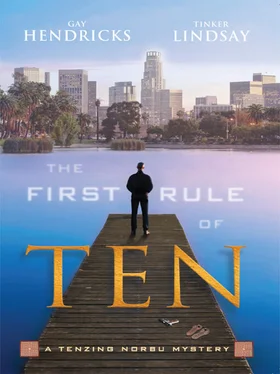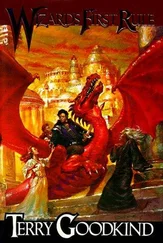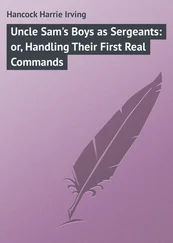Gay Hendricks - The First Rule of Ten
Здесь есть возможность читать онлайн «Gay Hendricks - The First Rule of Ten» весь текст электронной книги совершенно бесплатно (целиком полную версию без сокращений). В некоторых случаях можно слушать аудио, скачать через торрент в формате fb2 и присутствует краткое содержание. Жанр: Криминальный детектив, на английском языке. Описание произведения, (предисловие) а так же отзывы посетителей доступны на портале библиотеки ЛибКат.
- Название:The First Rule of Ten
- Автор:
- Жанр:
- Год:неизвестен
- ISBN:нет данных
- Рейтинг книги:3 / 5. Голосов: 1
-
Избранное:Добавить в избранное
- Отзывы:
-
Ваша оценка:
- 60
- 1
- 2
- 3
- 4
- 5
The First Rule of Ten: краткое содержание, описание и аннотация
Предлагаем к чтению аннотацию, описание, краткое содержание или предисловие (зависит от того, что написал сам автор книги «The First Rule of Ten»). Если вы не нашли необходимую информацию о книге — напишите в комментариях, мы постараемся отыскать её.
The First Rule of Ten — читать онлайн бесплатно полную книгу (весь текст) целиком
Ниже представлен текст книги, разбитый по страницам. Система сохранения места последней прочитанной страницы, позволяет с удобством читать онлайн бесплатно книгу «The First Rule of Ten», без необходимости каждый раз заново искать на чём Вы остановились. Поставьте закладку, и сможете в любой момент перейти на страницу, на которой закончили чтение.
Интервал:
Закладка:
I walked through a glass door, down a short hallway, and through a second set of doors, glass and wood this time. A concierge sat at a table to my right.
His suit put my outfit to shame.
He gave me a covert once-over. I stood up straighter. I might not have the bone structure, coat, and teeth of a purebred, but I at least hoped to meet the minimum standards.
“Good afternoon, sir. Can I help you?” he sniffed.
“Tenzing Norbu, here to meet Mr. Thomas Florio,” I said. “Senior.”
“Of course. Mr. Florio is expecting you.” He ushered me through the foyer and into the lobby, which was spectacular. Muted rugs covered highly polished pink marble flooring, and the hand-painted ceiling was a work of art in itself. I felt like I had stepped into my own private Taj Mahal, Greco-Roman style.
“Mr. Florio is in the Library,” the concierge murmured. Gliding silently, he led me past display cases of antique porcelain and landscapes by artists I was sure I’d seen in one of my art books, to a wide marble staircase covered in red and gold carpeting. We ascended, crossed a second foyer, and climbed a few steps to a small mezzanine. I barely had time to register the artwork when up we went again, to a beautifully appointed hallway, lined with still more landscapes. We stopped midway, at a huge pair of ornate wooden doors.
“The Town Club Library,” my guide announced. He opened the heavy wooden doors, and I stepped into a secret world of hushed opulence. Wall-to-wall flooring echoed the downstairs in a repeating pattern of rose and gold florets. A row of columns marked smaller private sitting areas. A painting of a man in a scarlet robe and cap pinned me with stern eyes, pegging me as an interloper of uncertain beliefs.
My guide turned left, but I paused to scan the spacious room. I might never get this close to a museum-quality world again. Lots of columns, sculptures, busts, and ornamental vases. Lots of portraits of hoary men staring into the distance, calculating their net worth. I felt completely intimidated, which was probably the point.
“He’s in the stacks,” the concierge said, and led me between two enormous cloisonne urns, one black, one red: possibly the final resting place of expired associates who couldn’t bear to give up their membership.
This was the “book” part of the Library. The shelves were full of them, floor to ceiling. Maybe six or seven thousand print volumes, and not a Kindle or iPad in sight.
Directly across from us was a large fireplace under a magnificent carved wooden mantel. Two leather wingbacks flanked the hearth. A distinguished gray-haired man sat in one, reading a leather-bound book. He gave a little wave. The concierge left us, melting into the background and out the door.
My chest was reminding me I needed to breathe. I was strangely nervous as I made my way to Thomas Florio, Sr., stepping around an Old World globe set in a four-legged wooden frame. It was tipped on its axis, just like me.
Florio was compact, very fit for a man in his 70s, with a full head of wavy hair combed back on both sides and crested over the top. His black suit and pearl-gray tie were somber, but a vivid red pocket square added a waggish dash of color. An old-fashioned leather briefcase rested on the floor next to him. He set his book aside and slowly climbed to his feet. He reached out a slim hand.
“Mr. Norbu. I’m Thomas Florio. Good of you to come.”
“Please call me Ten. It’s short for Tenzing.”
“Thank you, Tenzing. Ten. No doubt you’re of Tibetan heritage?”
“More of a hybrid, actually. My father is Tibetan, my mother was born in America, but moved to Paris before I was born.” I changed course. “Beautiful place,” I said, gesturing to the elegant decor.
“Yes, I find it very pleasant. So pleasant, in fact, that I’ve come here almost every afternoon for twenty years.”
He moved to the globe and set it spinning with one slender finger. “As I’m sure you know, most of the world first heard the name Tenzing when Sir Edmund Hilary and his Sherpa climbing partner, Tenzing Norgay, summited Mount Everest back in 1953.”
I told him my father had the good fortune of actually meeting Tenzing Norgay once, when I was just a child.
“Good for him,” he said. “So, then. Tibetan-American-Parisian-you come from unusual stock.”
I could feel him waiting for me to reciprocate. Normally I’m not one for prolonged small talk, but I was on his turf. I also sensed this was some sort of an audition, and if I was to pass, I needed to adapt to the social rituals of this select tribe.
“And you, sir? What is your background?”
Florio smiled. He took his seat and gestured to the matching leather chair across from him. “Sit, please, Ten!”
I sat, glancing at the spine of the book Florio was reading. I smiled to myself. It was The Prince, by Machiavelli, the famous Renaissance guide to attaining political power. Perfect.
He laced his fingers and settled back in his chair. “My grandfather emigrated from Italy almost a century ago.
He established himself in the banking business, inspired by the great success of a distant cousin, A. P. Giannini.”
Florio’s eyes lasered in on mine, assessing my reaction. Giannini. Oh, man, I knew that name. Mike’s face popped in my head. I took my best shot.
“He founded … Bank of America?”
Florio nodded, pleased. “That’s right. Amadeo Giannini was in fact a revolutionary, the first man to create a bank for the masses. Before him, banks were only for the wealthy. My grandfather and father followed his lead, although on a much more modest scale. But times have changed, and banking is no longer what it was. In my era, I have found it necessary to diversify into other areas.”
I was dying to ask what other areas, but we were getting along so swimmingly, I decided to wait. “Sounds like quite an immigrant success story. I’m trying to be one of those myself.”
“And from what I hear, doing a fine job of it. A stellar member of law enforcement, and now an entrepreneur of sorts.”
Okay. Enough. I was starting to go into sugar shock with all this sweet talk.
“What can I do for you, Mr. Florio?”
“Thomas, please.”
“Thomas.”
“Let’s repair to the Tap Room, shall we?”
Fine by me.
The Tap Room was a pedigreed drinker’s dream. The polished bar, lined with studded black leather barstools, was 50 feet long. The authentic assortment of colossal Old World beer steins displayed above it made my ale-swigging soul swell with anticipation. The walls here were lined with black-and-white photographs of past luminaries, interspersed with the only bow to modernity I had seen, several flat-screen televisions. They were tuned to different channels, broadcasting the breaking news of politics, finance, and sports to people who moved money accordingly.
We sat in leather club chairs at a table in the corner, under leaded glass windows. A waiter materialized to take our orders: for me, locally brewed India pale ale on tap, for Thomas Sr., something with a fancy Italian name I didn’t quite catch.
Thomas Sr. exchanged nods with a few businessmen across the room. A pair of women in power suits glanced our way before returning to their conversation.
The waiter set a tall stein of straw-colored ale in front of me, and two small snifters of thick amber liquid before Mr. Florio. He raised one glass to mine.
“Amaretto,” he said. “A custom I inherited from my grandfather.” We clinked glasses, and I took a long, happy draw. The icy-cold ale cut through the road dust on my tongue. I sighed with pleasure. Nothing like good beer, on tap, for free.
Florio drained his liqueur, and set his first glass down. “Here is my concern,” he said. “During your conversation with my son, you mentioned something about Mr. Barsotti. Specifically, that Mr. Barsotti had a girlfriend. Did my son hear that correctly?”
Читать дальшеИнтервал:
Закладка:
Похожие книги на «The First Rule of Ten»
Представляем Вашему вниманию похожие книги на «The First Rule of Ten» списком для выбора. Мы отобрали схожую по названию и смыслу литературу в надежде предоставить читателям больше вариантов отыскать новые, интересные, ещё непрочитанные произведения.
Обсуждение, отзывы о книге «The First Rule of Ten» и просто собственные мнения читателей. Оставьте ваши комментарии, напишите, что Вы думаете о произведении, его смысле или главных героях. Укажите что конкретно понравилось, а что нет, и почему Вы так считаете.












